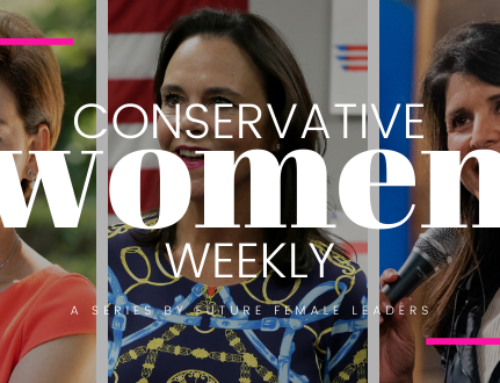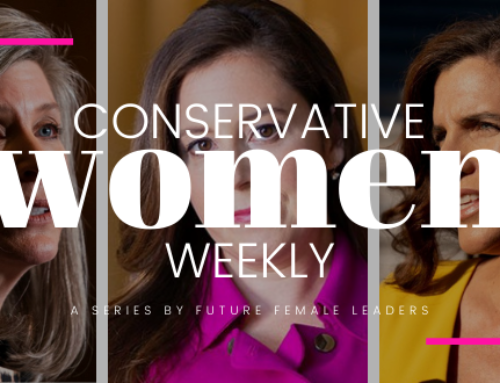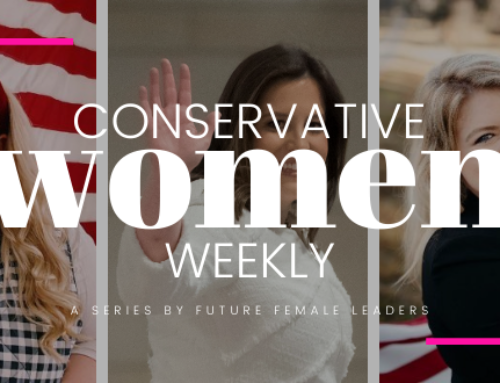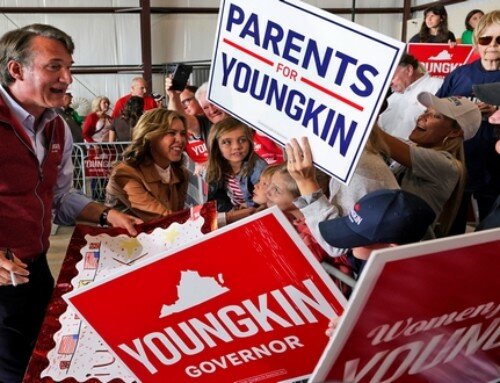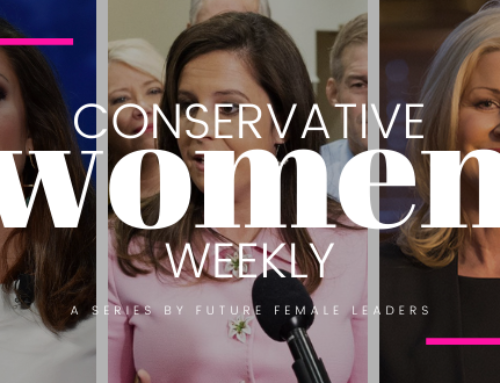Harry Potter: magic, love, friendship, and… politics? It’s likely you’ve never associated these things with one another, but bear with me because at one point, I didn’t either. When I was just a carefree elementary school kid reading the Harry Potter series for the first time, getting caught up in the threats and drama of Hogwarts, the last thing on my mind was a big-picture life lesson.
I wanted to live in the wizarding world, own a pensieve, and fly on a broom—never did I think that my very real, non-magical world mirrored Harry’s. But now at least once a year I read and/or listen to the entire series, and as I get more involved in politics (and closer to my degree in English), I have found more and more parallels between the magical world of Harry Potter and our own.
Especially in Harry Potter and the Order of the Phoenix, when more details concerning the Ministry of Magic are revealed and the organized anti-Voldemort movement is introduced to the reader, these parallels are evident. I can’t help but to realize that the frustrations and struggles that Harry, Ron, and Hermione encountered with their government are oddly familiar to ours. Specifically, I have discovered that more and more ideals which Harry and his friends fought for correspond to the fundamentals of the real-life conservative movement.
You may be wondering: since our generation seems to get increasingly leftist by the day, how could Harry Potter be conservative if we, the ones practically raised on the series, are (generally) not conservative? Good question. Not long ago, we were captured by this world, rooting for Harry and everything that the anti-Voldemort movement stood for, yet when you take away the magical atmosphere, it seems as if people don’t root for those very same ideals in their actual lives.
Whether or not you agree with J.K. Rowling’s opinions, please at least in this context, learn to appreciate her work as its own entity, because you have to agree that it is a masterpiece that took the world by storm and arguably saved literature for younger generations. That’s not a small feat. And please understand that I am not trying to use a fictional world to validate conservative viewpoints. Rather, I am seeking to playfully point out how they do align and, when placed in a fictional context, readers are quick to sympathize with Harry and therefore support conservative ideals. Yet those same ideals are often deemed to lack compassion, validity, or worthiness to be shared in our modern culture.
If you haven’t already been racking your memory for the plot of Harry Potter and the Order of the Phoenix to draw these comparisons, I’ll outline just a few major ones:
The Ministry (ahem, the government) interferes at Hogwarts
With every Educational Decree implemented by Umbridge, the students and teachers at Hogwarts became more restricted and more furious. And so did we—Umbridge was literally the worst. She ignored logical teaching tactics, she didn’t value the professors who actually knew what they were doing, she implemented the government’s perspective on the curriculum, and she insisted she was right all the while. Briefly stated: as the government got more involved in education, education worsened. Sound familiar?
Somehow the readers who once hated the Ministry now vote for leftist candidates who support Common Core and a government-controlled education. Conservatives want anything but government inference into our coursework and administrations.
Corrupt government-puppet (need I go on?) Dolores Umbridge infringes on students’ free speech, ability to assemble, and diversity of thought
Hermione, probably the most morally sound character of the Harry Potter series, was reprimanded by Umbridge for disagreeing with her curriculum, and we considered Hermione’s perspective. Yet when real-life conservative students criticize the liberal bias they are being taught, professors silence them. Even though we all want comprehensive, honest, and diverse courses, all too often the personal opinions of a professor block an opportunity for open discussion. Conservatives demand diversity of thought in the classroom.
Umbridge was a shining example of how the government can infringe upon one’s rights to free speech and assembly when she silenced students and staff, prohibited particular literature and talking points, and banned gatherings that didn’t align with her opinions. Talk about being closed-minded.
Once Umbridge got wind of the D.A., she created Educational Decree Twenty-Four to disband all groups and organizations. Likewise, conservative students are commonly outnumbered and silenced on college campuses.
You aren’t rebellious nor “woke” for being radically left in college… you’re just following what is culturally acceptable for young people. If you ever dreamed of joining Dumbledore’s Army, try being a conservative on campus.
Widespread denial of legitimate threats, and using the government to restrict other people from protecting themselves
After Harry defended himself and Dudley from dementors, even though it sounded unlikely to the government, his life was in danger and he needed personal protection. We knew that, and we kept supporting him because we could all agree that the government was out-of-touch and shady.
When Umbridge banned the use of magic in her class and denied the fact that there was a looming threat (Lord Voldemort) our emotions roared with outrage at the fact that she compromised protection to hold up the false utopia world that she insisted existed.
But when conservatives advocate for our Second Amendment rights, we are scoffed at. Many of the same people who saw the importance in a class named “Defense Against the Dark Arts” claim that there is no need for an individual to protect himself/herself and loved ones.
Fake news (laugh if you want, but would you trust the Daily Prophet?)
Another parallel arises with Rita Skeeter’s Daily Prophet articles, which were nothing short of outrageous. Hermione stood up for the fact that Harry deserved “the opportunity to tell the truth” and for it to be published for mass consumption, and we cheered her on even though Rita insisted that there was “no market” for the truth so ”The Prophet wouldn’t print it.” Rita showed how the media only published content they thought consumers wanted to hear. Hermione once again called out the press and said “…the Prophet won’t print [the truth] because Fudge won’t let them.” Clearly the Ministry doctored stories to fit their agenda, and they didn’t care if their “news” was full of lies that put people in danger.
Our own modern media is also heavy on the entertainment factor, light on the facts, and quick to appease political groups. Yet our generation too often takes “news” at face value without second thought.
Although these parallels are most prominent in Harry Potter and the Order of the Phoenix, they continue throughout the series. Have you ever correlated the fact that in Harry Potter and the Deathly Hallows, with the rise in fear and Voldemort’s power came a rise in government power? School choice was taken away, the Ministry wrongfully overstepped their power by taking private and personal information from witches and wizards, discrimination was enforced, and anyone who opposed Voldemort was a target of the government. Plus, “taboo” words were imposed to ensure that any resistance to their agenda would be located by Snatchers and punished (does that ring a bell in our PC cancel culture, anyone?).
While I could further explicate the disheartening parallels between Harry’s world and ours, luckily for us, the parallels are not limited to being unfortunate. Just as Harry had his loyal friends, Dumbledore’s Army, and the Order of the Phoenix, we too have hope in the form of Americans unifying to stand up for justice, peace, freedom, and truth. In my experiences, I have found so much hope in informed dialogue in everyday conversations, just as Harry always could depend on Ron and Hermione. I have also found empowerment and strength in grassroots movements and good people in positions of power, just as Harry did.
Our world’s good and evil is not quite always as black-and-white as the sides presented in the wizarding world, but we too have a decision to think for ourselves and—no matter how much the world may ridicule you—stand up for what is right.
And though I find myself disagreeing with others more often than not, that is an important aspect of free speech that I hope both sides can agree on, for it must be upheld. You may be in a different political party (or Hogwarts house) than me, but as the Sorting Hat said:
“…our Hogwarts is in danger
From external, deadly foes
And we must unite inside her
Or we’ll crumble from within.”
Lucy H
CABINET MEMBER
Lucy Hutchinson is a proud Pennsylvanian. Her life goals include riding a bison, becoming a physician, visiting all seven continents, and retiring as an old beekeeper. She spends a majority of her time studying, reading, or worrying about not studying or reading. Amidst that worrying, you’re likely to find her gushing about Jane Austen, Israel, sun protection, agriculture, and GMOs.


